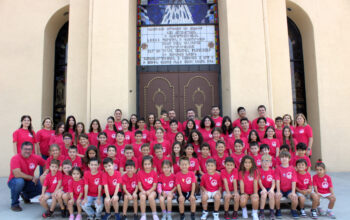For six years, Civil Contract’s online surrogates and talking heads have leaned on the same safety blanket whenever their record is challenged: the opposition is just the nakhkin—“the formers”—and there are no new, viable candidates. It’s a neat rhetorical trap. If critics come from the old guard of Robert Kocharyan or Serzh Sargsyan, they’re disqualified by definition. If someone new appears, they’re instantly branded as “the same old system in disguise.” Heads I win, tails you lose.
“Our Way” is the first serious stress test of that crutch.
The fledgling movement—organized around jailed Russian-Armenian businessman Samvel Karapetyan—has drawn a bright line from day one: it will not cooperate with the mainstream opposition linked to Kocharyan or Sargsyan. “Samvel Karapetyan’s team will come up with its own political message, its own political way—our way,” his nephew Narek Karapetyan said Thursday, underscoring that the project is not a recycling of yesterday’s cast but an attempt at a different script.
A bid to break the binary
The promise is explicit: a technocratic government with its own center of gravity—neither Civil Contract nor the traditional opposition. That alone punctures the lazy binary that has dominated discourse since 2018. The political market isn’t just “yesterday vs. today.” There is room for a third option—if it can organize, survive lawfare, and speak to the country’s disillusioned middle.
Those disillusioned voters, by many accounts, are now the largest share of the electorate: people tired of a government that asks for endless leeway and an opposition that never quite earns trust. “Our Way” is speaking directly to them.
The legal vise—and the message
Karapetyan was arrested in June after denouncing what he and many public figures describe as a government campaign against the Armenian Apostolic Church. “I have always stood by the Armenian Church and the Armenian people,” he said at the time. Prosecutors treated his remarks as incitement to violent overthrow and later layered on charges of large-scale fraud, tax evasion, and money laundering. His lawyers call the case political; a court has now extended his detention by two months. From custody, Karapetyan has signaled he intends to lead the movement anyway.
Civil Contract’s ecosystem will try to staple the nakhkin label onto him regardless—by association, by innuendo, by shouting “oligarch” on loop. But the substance of the movement’s stance is what matters: no deals with the old parties, a different governing model, and a platform that lives or dies on what it can deliver—not on who it can recycle.
Pre-emptive gatekeeping
At a July 16 press conference, Prime Minister Nikol Pashinyan raised another hurdle: Karapetyan must renounce his Russian citizenship to participate in politics. Whether you see that as a legitimate standard or a convenient filter, it’s telling. When the ruling party’s favorite argument is “there are no real alternatives,” and a would-be alternative appears, the first move isn’t engagement on policy—it’s to narrow the gate.
There is also speculation that former Prime Minister Karen Karapetyan (no relation) could front the slate in the June 2026 parliamentary elections. Narek Karapetyan has neither confirmed nor denied it; Karen Karapetyan, while criticizing the tycoon’s prosecution, hasn’t commented on the rumors. If he does step in, Civil Contract’s chorus will instantly call him a “former”—proof, they’ll say, that nothing is new. But that misses the point. Voters don’t shop for birth certificates; they shop for governance—coherent teams, credible plans, and the capacity to execute.
The argument that’s run out of road
Let’s be honest about the discourse. Branding everyone outside Civil Contract as nakhkin has been a substitute for debate, not a contribution to it. It’s a way to avoid answering hard questions: on security catastrophes, institutional erosion, the Church-state conflict, economic concentration, and a diplomacy that keeps handing Armenia “fait accompli” moments. When “Our Way” says it won’t touch deals with Kocharyan or Sargsyan, the nakhkin refrain loses its reflexive bite. If the ruling camp keeps shouting it anyway, it will sound less like analysis and more like muscle memory.
What would actually count as “new”?
New is not a face we haven’t seen on TV. New is:
- A governing architecture that reduces personalism and strengthens institutions.
- Competence over branding—deliverable timelines, measurable outcomes, and people who can do the work.
- A real social contract that speaks to the abandoned middle: small producers, young professionals, and families who feel politically homeless.
- Clear boundaries with legacy elites and today’s courtiers alike.
If “Our Way” can present that—and survive an openly hostile environment—it will have already blown a hole in the “no alternatives” story. If it cannot, the failure will be on its design and execution, not because Civil Contract’s slogan was prophetic.
The bottom line
Civil Contract’s most comfortable talking point is that the choice is between them and the past. “Our Way” exists to challenge that convenience. The government can keep shouting nakhkin and insisting there are “no viable candidates,” or it can meet a new contender on the field of competence, credibility, and policy. One path is slogan; the other is politics.
If the ruling party still needs the nakhkin crutch in 2026, that will say less about the opposition—and more about Civil Contract’s own fear of a real comparison.




